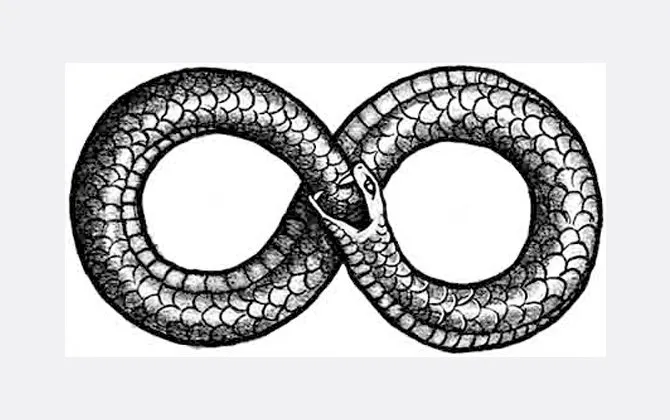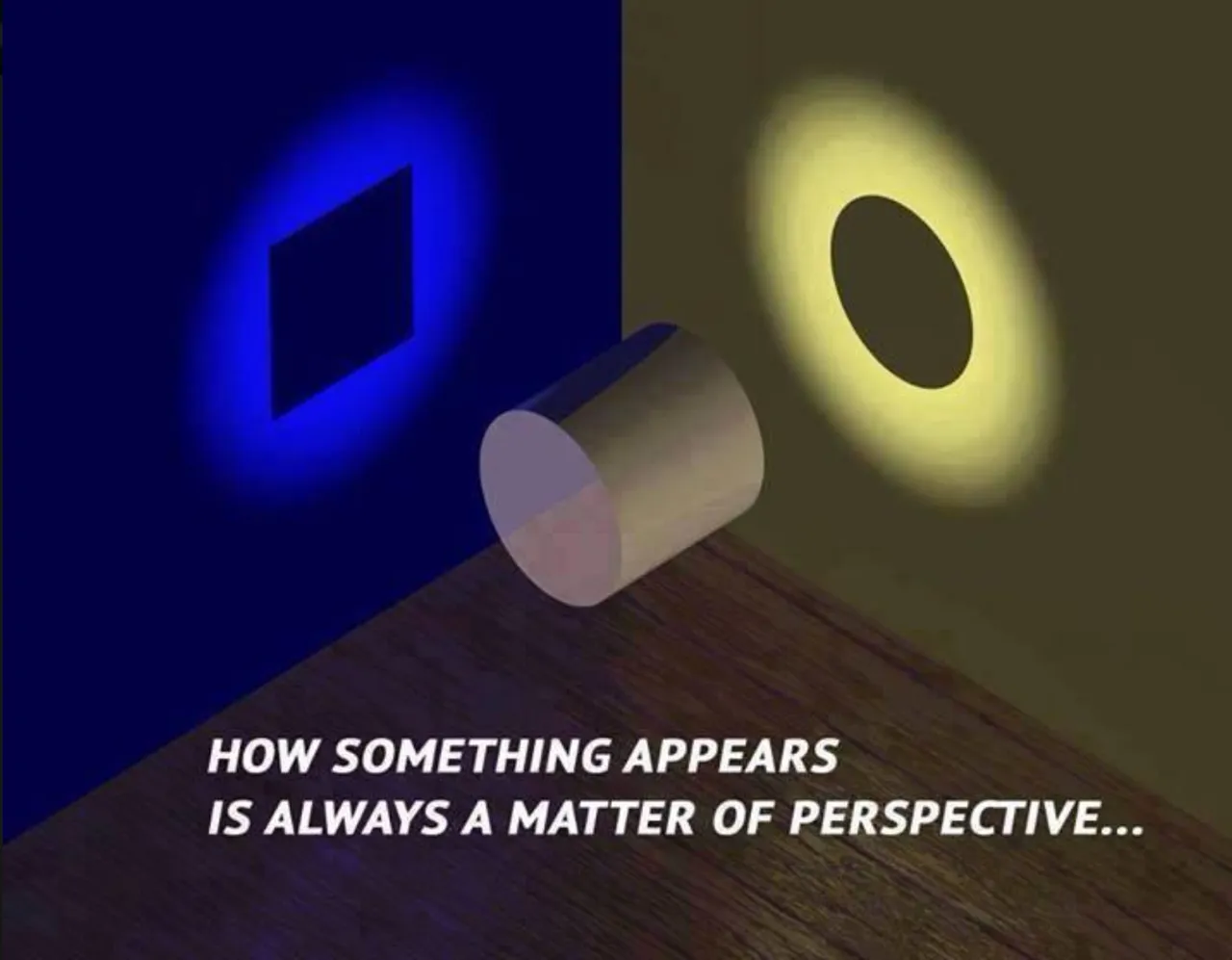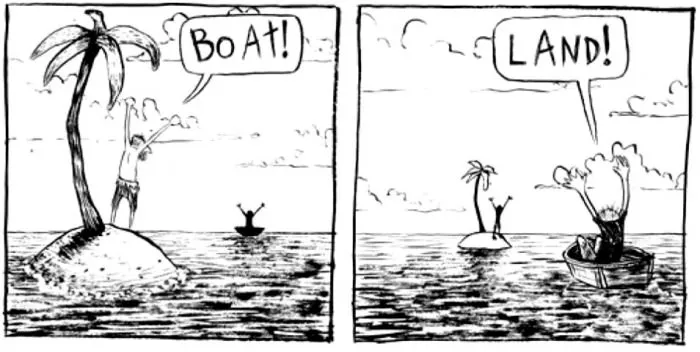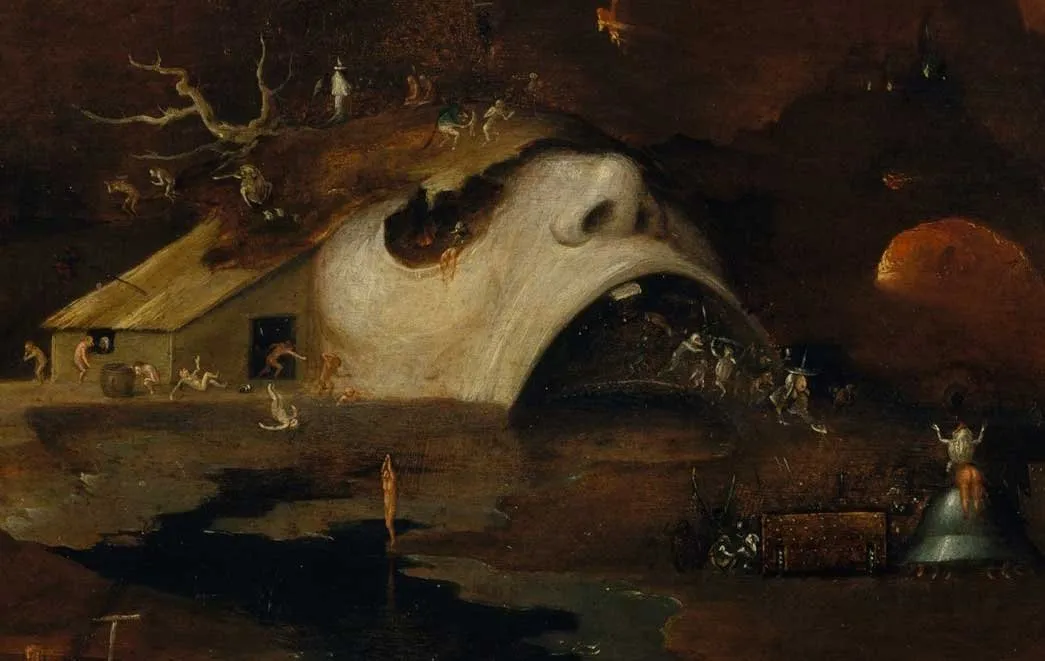
It seems that my last post about The Good Vs Evil Delusion has sparked some debate in regards to whether absolute truths exist.
I wrote another post about this a while back titled There Are No Absolute Truths so consider this post part 2. Before you jump to any conclusions about the validity of my premise (title) please read along.


Is the Statement Self Defeating?
Many people claim that the statement "There Are No Absolute Truths" is self defeating. This is erroneous since the sentence itself implies that the author is aware that even his own statement cannot be absolute. Most people that assume that the statement is self defeating is because they believe that the author, much like them, holds the belief that absolute truth exist.I explain the concept of relativism in detail in another previous post Blind Following The blind . There, I specifically detail how he human perspective will always be limited because we are doomed to follow hollow concepts that have been passed down to us. How can we possibly assert absolute truth about anything when everything in this universe is subject to change after all?


Testing the hypothesis
There is a great video from Vsauce where the guy explains more or less how under specific rules the earth is flat. His entire process is scientific and provides substantial evidence. The point is that everything is a matter of perspective, even in science.
The human experience is inherently inadequate. The tools we have created so far in order to evaluate everything around us are based on our limited biological senses. We know this because almost all other mammals have superior senses than us. Whether our brain is "better" because we have accomplished so much more than other animals is also a matter of interpretation. The Hitchhikers Guide to the Galaxy frames this idea eloquently;
“For instance, on the planet Earth, man had always assumed that he was more intelligent than dolphins because he had achieved so much—the wheel, New York, wars and so on—whilst all the dolphins had ever done was muck about in the water having a good time. But conversely, the dolphins had always believed that they were far more intelligent than man—for precisely the same reasons.” ― Douglas Adams, The Hitchhiker's Guide to the Galaxy
What Is Absolutely True For You Is Not For Someone Else
The debates I had so far eventually brought up Hitler (as always). Besides the fact that Ad Hitlerum is a common logical fallacy, what Hitler did was not objectively immoral or false. For millions of Germans, Japanese and Italians that supported his views what he did was objectively morally justifiable. Whether one disagrees with that is irrelevant. An objective truth has to be aspired by all people that ever lived and will ever live in our species. Yes, every single one across time and space. This is what makes the truth "absolute".

Time & Space Change Everything
300 years ago slavery was morally justifiable for just about every single human being — sometimes even slaves themselves. It was part of daily life, the status-quo if you like. Humans could be bought and sold at will. Fast forward today and almost everyone disagrees with slavery.Today we can find moral absolutists say that "Murder is Objectively Immoral". This is also false since under specific circumstances (war, mental illness, self defense) murder is very much justifiable. What is true today does not necessarily mean that it will be true tomorrow and most definitely it was not true in the past. This is how subjective our world is. Even child cannibalism cannot be justified. The Inuits of Canada, when found in harsh winters resort to eating their first born in order to survive. Their morality dictates that they can always make more babies but if they die then the entire clan suffers.

Resorting To Eschatology
When the arguments run out, the moral absolutists summon the worst case scenario (something that involves toddlers being raped by Hitler or something equivalent). Interestingly enough, the vast majority of moral absolutists are religious. This makes sense since God provides moral guidance and rather "sets the rules for others to fear". This is nonetheless a false assumption since every religion person that I have met is their own heresy (and sometimes at different times of the same day). Moreover, if one needs the wrath of God in their life in order to be a good then this defies their perspective of absolute morality.

Being Humble
I assert that there are no absolute truths and I admit that this is not a statement of absolute truth. If I hear that "John is a bad guy because he is a thief" I would have to take into consideration every single parameter from John's life in order to evaluate that statement as objectively true. If I am an anarchist and find out that John was born in an abusive environment where his government stole from him (and he just happened to take back what originally belonged to him), then John, according to my subjective evaluation is not a thief. If I am a statist and hear that John is a thief because he stole something from the government, then I would assume he is a thief. A single piece of information and our own beliefs can tumble down. This is exactly why there are no absolute truths.Defeating Fear
From my debates in Steemit, I soon realized that the problem most people have is fear. Humans are afraid to live in a world where people believe in different versions of the truth. This is the same problem religions and governments have — hence why we have systems around us that everyone can follow.If you are a successful religion and/or government then after a few generations the people will believe some things as absolute truths. It all comes down to democracy after all. If a psychotic person believes in the absolute existence of a flying pink elephant and nobody else does, then we assert that he is wrong. If 1 billion believe that if they die heroically they get to be in a gang bang with 72 virgins in Paradise, then it becomes an absolute truth to them and only them.

The Evidence
I challenge anyone to demonstrate a single absolute truth. That is something that can never change and is resistant to both time and space. The null hypothesis is that there are no absolute truths. It is the default position and it is justified both by natural law and rational thinking. For one to dispute this they have to demonstrate the absoluteness of their statement. As far as I am aware this is physically impossible. The universe itself is subject to change. An absolute truth can only exist if everything freezes still aka non-existence. Subjective truths is what gives rise to time and space and what sets the human experience in motion.Take a look at the image below. Every single statement you ever made, every single thought that ever passed from your mind is a conglomerate of other people's limited experiences. Much like a blind person who follows another blind person because he cannot perceive the entirety of the world around him. We cannot possibly capture all time and space. What you think you know or understand is nothing more than a meta-experience — a broken telephone game. The most self-defeating thought a person can entertain is to assume absolute truths. Sooner or later time will prove them wrong. I leave you with Richard Feynman's take on the subject.


